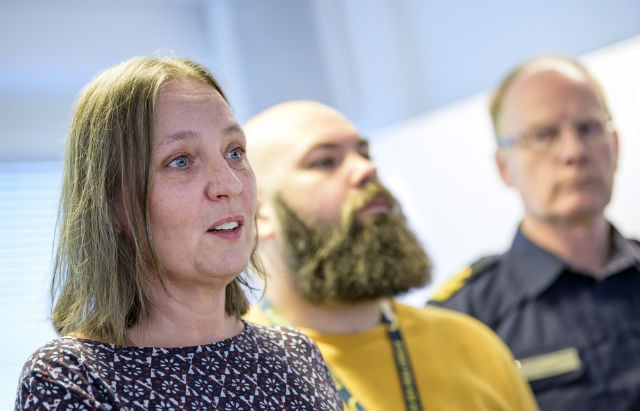On Thursday, Malmö's authorities held their second so-called 'call-in', with eight young men identified as having gang links invited to the city's football stadium to meet with police officers, social workers and others.
Anna Kosztovics, who is leading the project for Malmö's social services, told the Sydsvenskan newspaper that many of the young men she had met since the “Sluta skjut” or “Stop Shooting” scheme was launched were themselves afraid.
“They are frightened of being killed or of being forced to kill someone themselves,” she said. “They live a life in which they are constantly looking over their shoulders and don't know who their friends are anymore.”
But she acknowledged that leaving the criminal life was “a longer process”, which would take time even for those who had expressed an interest.
Glen Sjögren, a community police officer for the city's troubled Rosengård district, said that many of the young men welcomed the scheme.
“We have had such an extreme situation in Malmö over the last few years that when we meet these young men they say 'thank you, we are also tired of the shootings. This is something you should have done years ago',” he told Sydsvenskan.
“Sluta skjut” builds on the Group Violence Intervention (GVI) strategy that grew out of Boston's Operation Ceasefire project in the 1990s.
The eight men who attended Thursday's meeting were forced to do so under probation deals, and risked 15 days in prison if they failed to turn up. One had been released from prison for drugs offences the previous week, and another was himself shot last year.
The men are given a mixture of encouragement and threats. A doctor from Malmö Hospital told them about how hard it is to rescue the life of someone who has been shot. A mother whose child had died spoke of the sorrow of losing a child.
Then Malmö's chief prosecutor Anna Palmqvist and deputy police chief Mattias Sigfridsson briefed them on what might happen to them if police judged that they were still engaged in criminal life. Those who don't cooperate risk almost daily police checks, and having every aspect of their life scrutinised by the authorities.
“The attention they get from us makes it much more difficult for them to carry out crimes. It's 'bad for business',” Sjögren said.


 Please whitelist us to continue reading.
Please whitelist us to continue reading.
Member comments